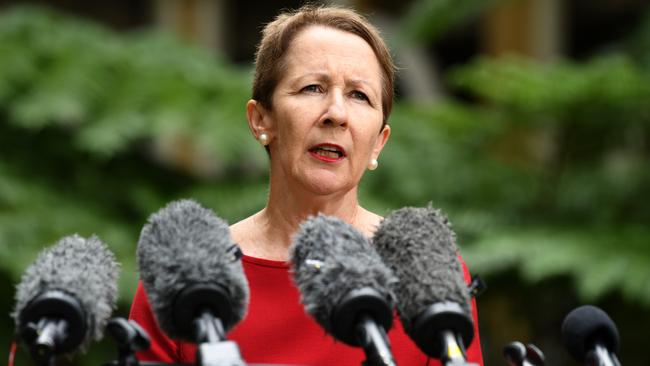COVID-19 child abuse crisis feared as vulnerable kids hidden at home
Neighbours and passers-by are being asked to band together to protect Queensland’s most vulnerable kids during the coronavirus pandemic.
Police & Courts
Don't miss out on the headlines from Police & Courts. Followed categories will be added to My News.
EVERYDAY people will be trained to keep watch for the signs of abuse and neglect in their neighbourhoods, to stop a coronavirus child safety crisis as vulnerable kids are trapped at home with their abusers.
This coronavirus article is unlocked and free to read in the interest of community health and safety. For full access to our journalism – and to download the digital edition of the newspaper as it is printed every day – subscribe here or at couriermail.com.au/subscribe (now free for 28 days!)
Isolated domestic violence victims to get funding
How Family Court will operate during pandemic
Family violence will only get worse with COVID-19 lockdowns
Child protection workers are fearful more children will slip through the cracks as teachers, GPs, sports coaches and others trained to raise red flags are no longer able to keep tabs on them.
Child Safety and Domestic Violence Prevention Minister Di Farmer said it was more important now than ever before for “bystanders” to speak up when they noticed something wrong.

The message came as the State Government announced a $5.5 million domestic violence package to boost funding for DV Connect, crisis accommodation, other specialist services and to support a new awareness campaign.
Ms Farmer said a perfect storm of financial strain, job losses and “cabin fever” were presenting incredible challenges for family violence, with a May 6 virtual summit planned to find solutions.
“When we are all out and about, there are so many points in the community when people come into contact with kids and their families,” Ms Farmer said.
“It’s not only the schools and teachers …. it might be at daycare, it might be at the GP, there are just so many ways in which people can see a family and think, oh, don’t know what’s going on there.
“And our really big concern is no one has got line of sight to those kids.”
She said that meant a whole new group of people – from neighbours, to the pharmacy worker and supermarket cashier – needed to learn the signs to look for.
“They now become even more critical,” she said.
“For all of us, our world has become much smaller.”
She said people were looking out for elderly neighbours but could also support local families.
“People are rally overwhelmed by what’s happening … (and) a lot of people don’t know how challenging it can be to be a parent,” she said.
“You’ve got people (new parents) who don’t know that you have to change their nappy frequently, or that if they’re sick you have to take them to the doctor, or how to manage tantrums, really fundamental things because no one’s helping them.”


